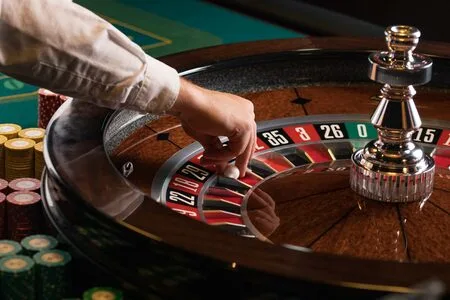
Roulette – The Most Interesting Things About the Casino Game
Roulette has captivated casino enthusiasts for centuries with its blend of chance and strategy. As one of the most iconic games in gambling history, it continues to attract both casual players and seasoned bettors seeking excitement and potential winnings. Whether spinning the wheel in a land-based venue or placing bets in an online casino, the game’s simple yet thrilling mechanics make it a favourite worldwide.
Despite its seemingly straightforward nature, roulette holds a wealth of intriguing details, from its storied past to the various strategies employed by players. This article will delve into the most fascinating aspects of roulette, including its history, different versions, betting systems, legendary players, and the rise of online and live casino variations.
Curious Facts from the History of Roulette
Roulette’s origins trace back to 17th-century France, with the game evolving from earlier wheel-based gambling activities. Blaise Pascal, a renowned mathematician, inadvertently laid the foundation for roulette while attempting to create a perpetual motion machine. The game gained popularity in French gambling circles before spreading across Europe and beyond.
The modern roulette wheel was refined in the 19th century, with Frenchmen François and Louis Blanc introducing the single-zero version to Monaco’s casinos. This adaptation reduced the house edge and helped establish Monte Carlo as a premier gambling destination. Meanwhile, in the United States, an additional double-zero pocket was added, resulting in the American roulette variation.
One of the most curious aspects of roulette is the so-called “Devil’s Game” nickname. The sum of all numbers on a roulette wheel equals 666, a fact that has fuelled myths and superstitions surrounding the game. Despite this eerie association, roulette remains a widely enjoyed pastime in casinos worldwide.
Varieties of Roulette
The two main types of roulette are European and American versions, each with distinct characteristics. European roulette features a wheel with 37 numbered pockets, including a single zero. This layout offers a lower house edge of 2.7%, making it the preferred choice for many players.
American roulette, in contrast, has an additional double-zero pocket, increasing the total to 38 numbers. This seemingly small difference raises the house edge to 5.26%, making the game more challenging for players. Despite this, American roulette remains popular in casinos across the United States.
Another variation gaining popularity is French roulette, which is similar to the European version but includes unique rules such as “La Partage” and “En Prison.” These rules allow players to recover part of their bets when the ball lands on zero, further improving their odds.
Effectiveness of Roulette Betting Systems
Many players attempt to beat roulette by using betting systems, though none guarantee consistent success. The Martingale system is one of the most well-known, requiring players to double their bet after every loss. While effective in theory, table limits and bankroll constraints often hinder long-term profitability.
Another popular strategy is the Fibonacci sequence, where players increase bets following the famous numerical pattern. This system allows for a more gradual progression compared to Martingale, though it still relies on covering previous losses with future wins.
The Labouchère system, also known as the cancellation method, involves a more complex sequence of bets. Players set a target amount and adjust bets based on previous results, offering a structured approach to bankroll management.
Despite their appeal, no betting system can change the inherent randomness of roulette. The game’s outcome remains dictated by chance, and while strategies can influence short-term play, the house edge ensures the casino always maintains an advantage.

Players Who ‘Beat’ Roulette
Throughout history, a handful of players have seemingly defied the odds and achieved remarkable roulette victories. One such figure is Joseph Jagger, a British engineer who in the 19th century discovered a biased roulette wheel in Monte Carlo. By exploiting its imperfections, he won significant sums before the casino corrected the flaw.
Gonzalo García-Pelayo, a Spanish gambler, used statistical analysis in the 1990s to identify biased wheels in casinos. His findings allowed him to make calculated bets, leading to substantial winnings. Eventually, casinos adjusted their equipment to prevent similar exploits.
Edward Thorp, a renowned mathematician, applied computer analysis to roulette in the 1960s. By using an early wearable device, he and his colleagues predicted ball trajectories with improved accuracy. While casinos swiftly banned such technology, Thorp’s work influenced modern gambling strategies.
Another notable case is that of Richard Jarecki, who spent years analysing roulette wheels across European casinos. His data-driven approach enabled him to win millions before casinos caught on and replaced their equipment.
Though these players found success, modern casinos have implemented rigorous measures to ensure fairness. Today, roulette wheels are meticulously maintained, making it nearly impossible to exploit physical biases.
Features of Online Roulette
The advent of online casinos has revolutionised roulette, making it more accessible to players worldwide. Digital versions offer various game modes, including European, American, and French roulette, catering to different preferences.
Online roulette features random number generators (RNGs) to ensure fair outcomes. These systems replace traditional wheels while maintaining the randomness and excitement of the game. Licensed online casinos are regularly audited to guarantee fairness.
Many online platforms provide additional features such as statistics tracking, bet history, and customisable betting options. These tools enhance the player experience and allow for more strategic gameplay.
Online Roulette in Live Casino
Live dealer roulette has become a favourite among online casino players, offering an experience that closely mimics real-life gameplay. Using high-definition streaming technology, live casinos broadcast roulette games in real-time, allowing players to interact with professional dealers.
The live format enhances immersion and transparency, as players can witness the wheel spin firsthand. Many live casino providers offer multiple camera angles and slow-motion replays, further adding to the authenticity of the game.
Additionally, live roulette often includes unique variants such as Lightning Roulette, which features random multipliers for increased payouts. These innovations make the game even more exciting for online players.
A Few Last Tips
While roulette is a game of chance, players can maximise their enjoyment by managing their bankroll effectively. Setting limits and sticking to a budget helps prevent excessive losses and ensures a more sustainable gaming experience.
Additionally, choosing European or French roulette over the American version improves the odds due to the lower house edge. Playing at reputable online casinos with fair gaming practices further enhances the experience.
